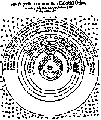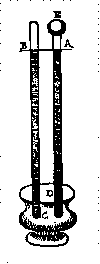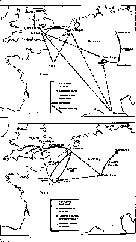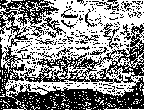| Home | Contact us | Book | Links | Bibliography | Papers | © 2008 Albert Ribas |
The Void and Emptiness Site. "Biografía del vacío". Scheme of contents
| The Catalan Society of Science and Technique History (Societat Catalana d'Història de la Ciència i de la Tècnica), in its annual meetings, included the Albert Ribas Lecture untitled "The Battle of Void" ("La batalla del buit"). It was a synthesis of the main contents of his book "Biografía del vacío". In this page you will find the slides of that lecture. The referenced battle was the struggle, in the philosophical and scientific circles, between the vacuum supporters and the antivacuist ones. This poignant discussion illustrates how the old concept of "horror vacui" subsisted in the Western thought. |
![]() Sure and direct purchase of "Biografía del vacío"
Sure and direct purchase of "Biografía del vacío"
 |
Summary
3. Experimental episodes in Seventeenth-century 4. Science and philosophy in the battle of Void (II): from Torricelli to Newton's victory
|
"[Newton]
admits, in addition to the matter, an empty space and, according to him,
the matter does not occupy more than a very small part of the space".
"... to affirm the void in the Nature is to attribute to God a very imperfect production; it is to violate the Principle of necessity of a sufficient Reason". Leibniz (1716), in his Controversy with Clarke |





